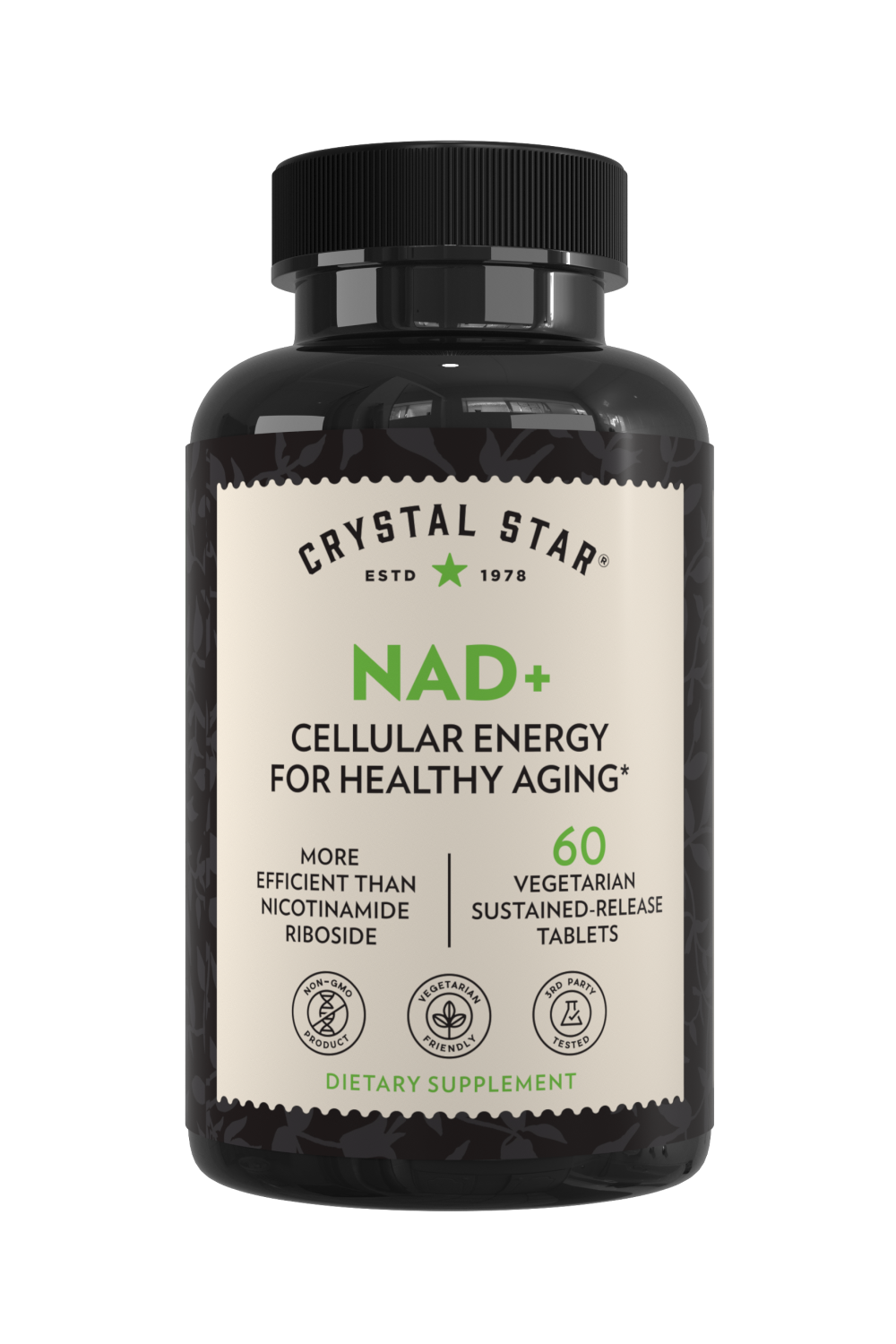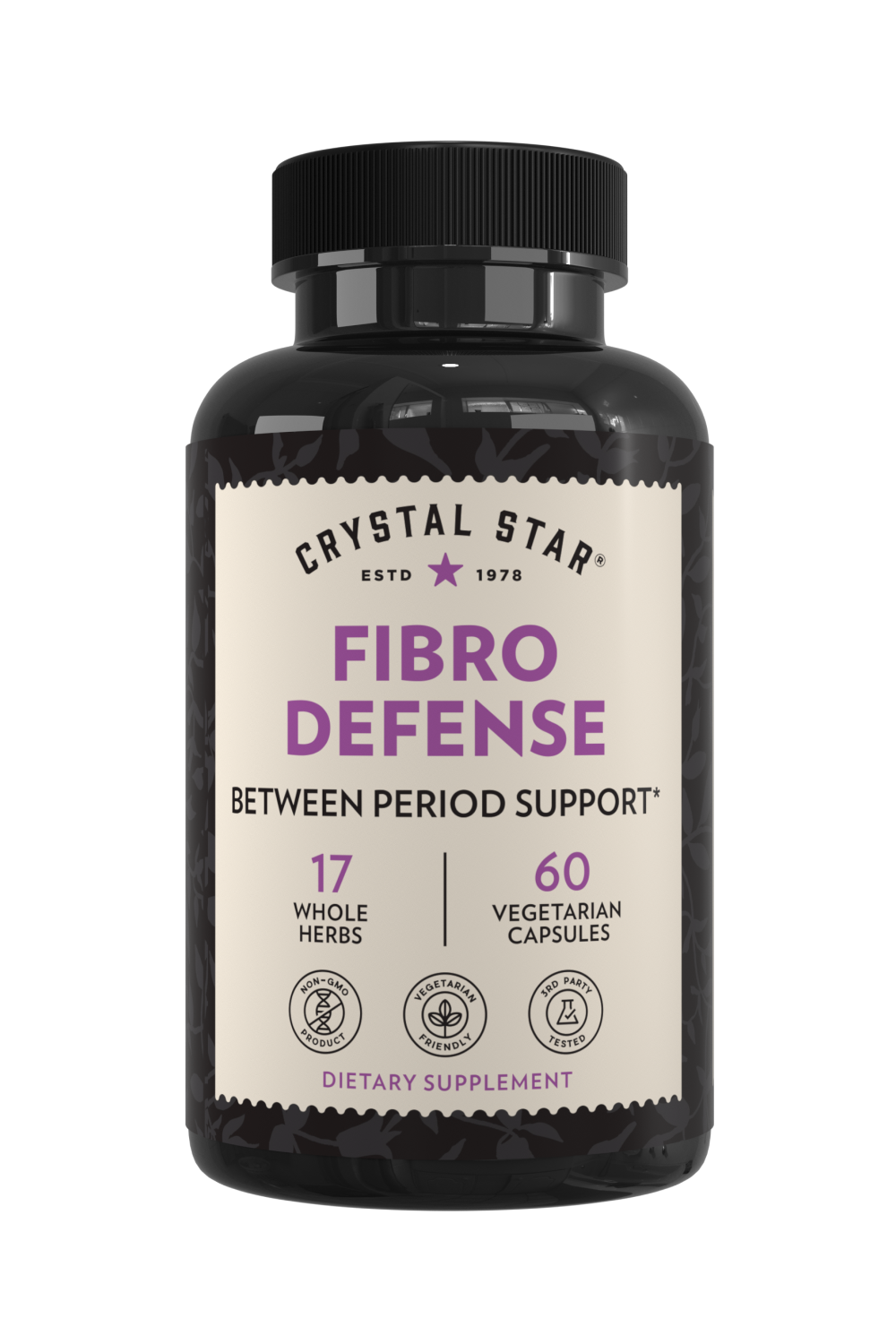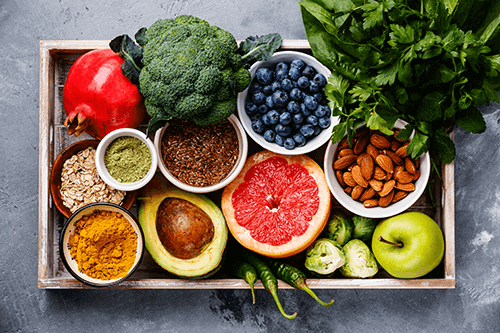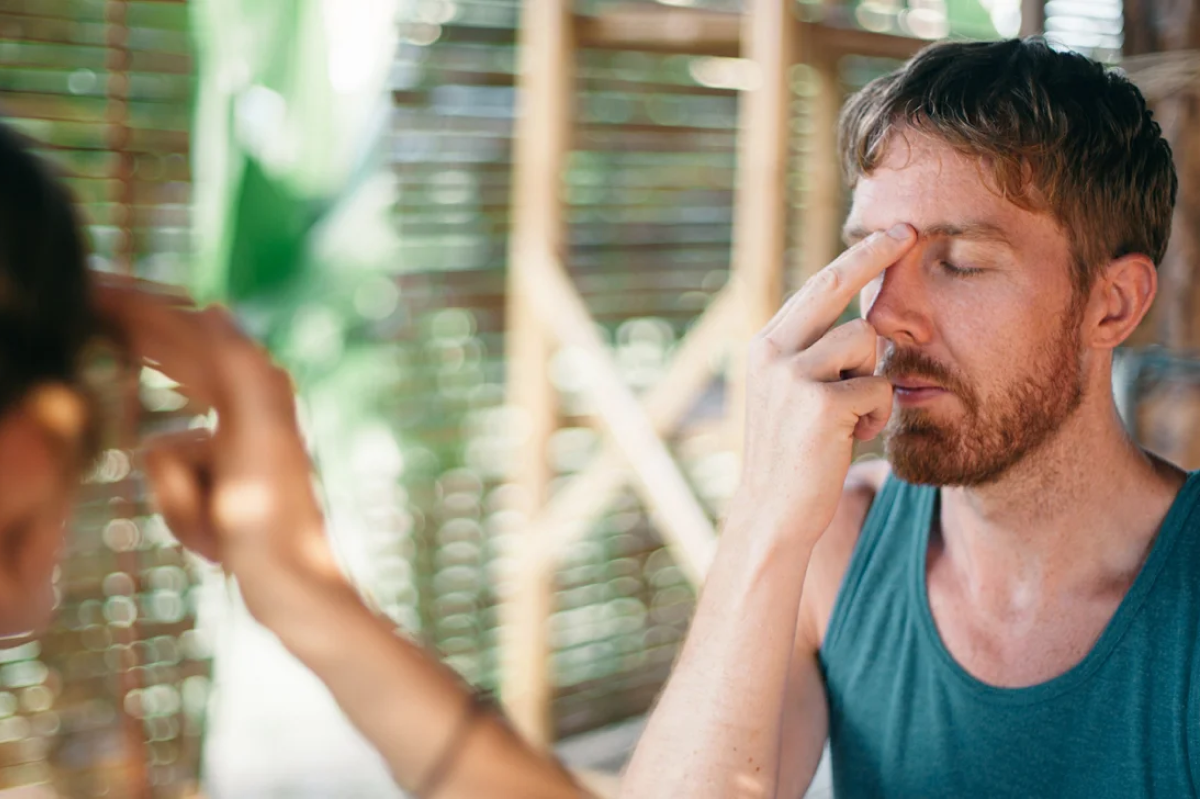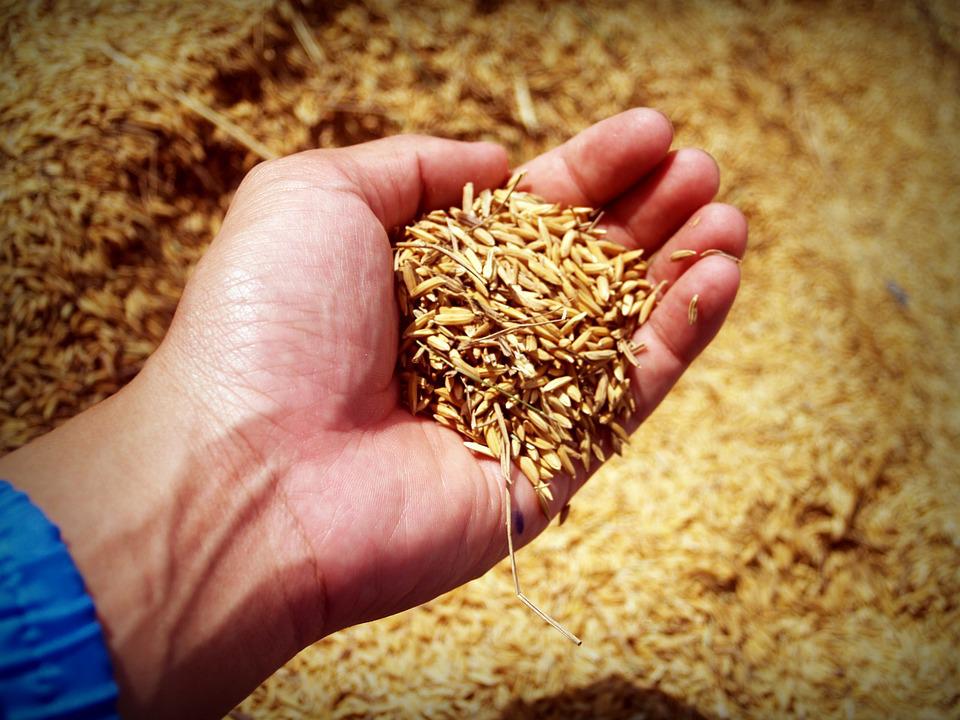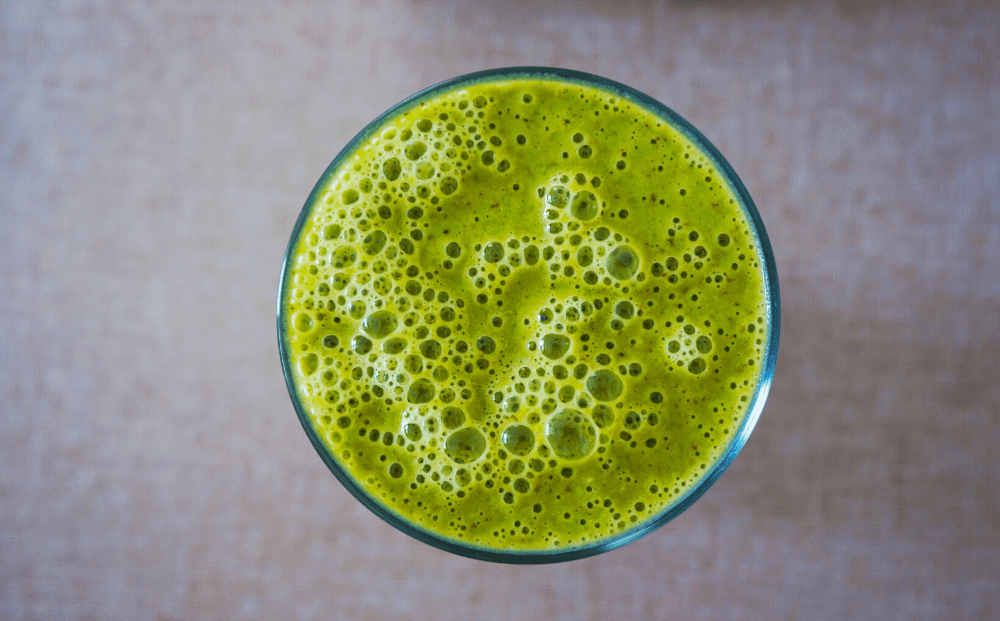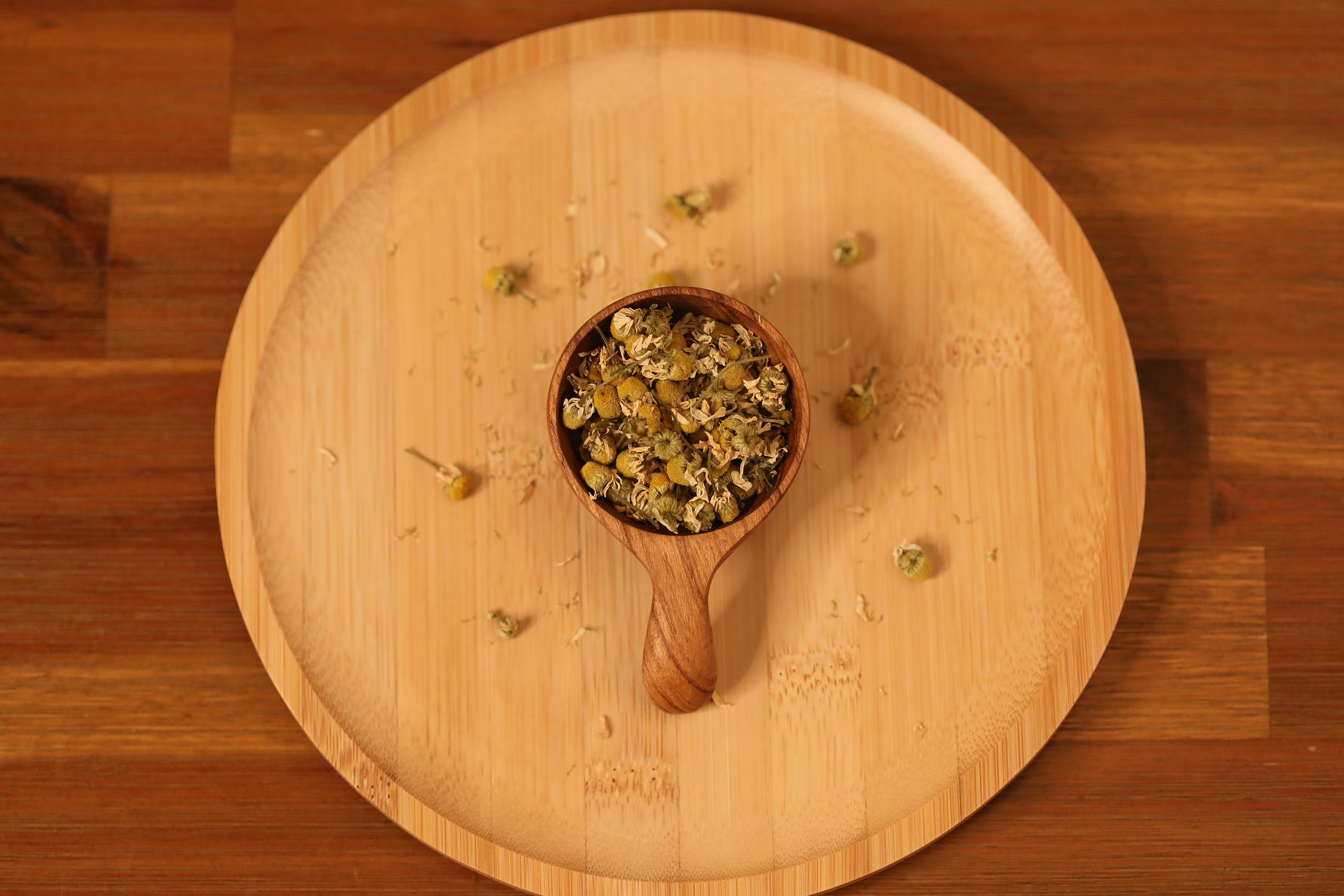
How Are Herbs Different From Other Supplements?
Natural health and holistic self-care are all the rage these days. Herbal products are a big part of this latest wave— and herbal supplements especially so. There’s a lot that consumers should know about herbal supplements before taking them, though. Misinformation is easy to come by, and it’s important to have healthy expectations of supplements while knowing facts from claims. That said, how can we understand herbal supplements better? One approach that may help: categorizing herbs as completely unique and separate from other health products.
In this article, we’ll go about doing this— discussing what herbal supplements are, what they do, how they should be approached and taken, and more.
What is an herbal supplement?

Most herbal supplements contain a single herb or blend of dried whole or powdered herbs in capsule or tea form. They can take the form of liquid herbal extracts (a.k.a. tinctures). Powdered capsules are the most widely-available herbal supplements. They tend to contain a dried component of the herb or herbs. Drying methods include ambient air drying, hot air drying, freeze drying and sun drying.[1] Extracts and tinctures provide liquid supplement options. These are typically water or alcohol-based (or sometimes both) and are stored and administered in dropper bottles. Some extracts are glycerin-based, too. The extraction method and medium are best determined by the nature of the herb’s compounds: whether they’re water-soluble (best extracted in water), alcohol-soluble (best extracted in alcohol), or fat-soluble (extracted only with oils and fats). For example, a cannabis tincture’s active compounds are only fat-soluble, making them most widely available as glycerin extracts. The majority of medicinal herbs, on the other hand, are predominantly alcohol-and-water-soluble, making a mixture of alcohol and water tinctures the most common and likely that you’ll be able to find in most cases. Rather than containing powdered and preserved parts of an herb or herbs, these are instead just compound-rich extractions that are taken daily (including active herbal compounds such as volatile oils, antioxidants, phenols, polysaccharides, saponins, and more).
Regardless of form, any herbal supplement contains either the choice parts or active ingredients of a botanical. These include aerial parts, flowers, roots, bark, polysaccharides, vitamins, minerals, volatile oils, and more. According to the highest herbal supplement industry standards, usually only the best-known plant parts and compounds (according to both science and traditional knowledge) are selected and extracted for their specific health effects.
How do herbal supplements compare to dietary supplements?
Herbal remedies are called “supplements” because they legally fall under the same category as dietary supplements. Still, there are ways that herbal supplements can be distinguished from other “average” supplements. When you think of supplements daily vitamin and mineral supplements may come to mind. There are also supplements containing amino acids, hormone analogs, neurotransmitter analogs, digestive enzymes, and more for various health purposes. Instead of whole herbs too, some dietary supplements may contain only the choice active ingredients or compounds of a single herb. A good example: curcumin, the active compound responsible for health benefits attributed to the culinary herb turmeric, is also available as a supplement on its own.
However, most herbal supplements contain whole herbs and are quite different from other dietary supplements as a result. Herbal supplements contain either a single whole herb (not just its active ingredients) or a formula of different whole herbs. Other dietary supplements only contain a single ingredient or compound, in most cases. Like other dietary supplements, all herbal supplements, too, are taken every day over the long term to boost some aspect of health. But, because a multitude of active ingredients can be found within a whole herb supplement (or a multi-herb formula), herbal supplements can have a more complex nature and impact on health. In some ways, herbal supplements may be more comparable to eating a whole, healthy food full of nutrients rather than a single ingredient with a single health impact (like a pharmaceutical or nutrient).
How do herbal supplements compare to other healing approaches?
There are plenty of health philosophies and products out there, with herbal and dietary supplements numbering among them. Besides these, conventional medicine offers a variety of treatments: over the counter drugs, pharmaceuticals, chemical therapies, surgeries, and more. These health products are “allopathic”, meaning they’re designed to get rid of or reduce certain symptoms or illnesses over a short period of time, or to completely suppress a health condition from expressing itself. Save the use of antibiotics to fight infection (or radiation therapies to destroy cancer for example), very few allopathic medicines directly address a root cause. However, most do provide rapid relief and vital care for urgent or emergency health issues. Though herbal supplements are far less fast-acting, they work in a more holistic fashion. This is because they contain many vitamins, minerals, phytonutrients, antioxidants, and other active compounds that can naturally support and strengthen certain bodily systems and tissues—much like a nutritious whole food, though more advanced. Some research shows that these holistic herbal approaches can enhance the way the body deals with health problems in its own way, and potentially even more effectively than some allopathic medicines (especially when it comes to mitigating side effects). However, this tends to only take place over a long period—depending on the herbal supplement, sometimes as little as a few weeks to a few months. Some examples: one study compared the use of passionflower for anxiety with a prescription anti-anxiety drug.[2] They were found to be equally as effective, with passionflower having less documented side effects—and thus, it could be considered the more effective choice. The same was found in this study of an herb used to treat parasitic infection.[3] Again, the herb was shown to be just as effective as the conventional choice, but in the end considered officially “more effective” owing to its shorter list of potential side effects and interactions.
Herbal supplements aren’t (usually) quick-fixes
Because of FDA regulations on herbal supplements (and also because of how herbs work), we need to be careful with how we think and talk about herbs. Plus, there’s a lot of misinformation out there that may give people the wrong idea about how herbal supplements work and what health benefits they can offer. Herbal supplements are not allopathic medicines, over-the-counter (OTC) drugs, short-term symptom relievers (in most cases), pharmaceutical drugs, or replacements for pharmaceuticals or your doctor’s recommendations. Instead, we should view herbal supplements as holistic remedies, long-term symptom support, complex dietary supplements, nutritive foundations to bodily systems, enhancements to treatments and doctor recommendations, and most comparable to nutrient-rich whole foods.
At one time, herbs were all we had to rely on for medicine. What we define as medicine now in the mainstream is quite different. As a result, our expectations of medicine today are different from the past. In many ways, herbs can fall short of these expectations. But, when used properly, they can still be very powerful vehicles for health. Cramp bark (Viburnum opulus), for example, is a traditional herb recommended for cramping and muscular pain. Ibuprofen, an over-the-counter drug, is also recommended for the same health problems. It’s a mistake to expect a cramp bark herbal supplement to have the same effects of Ibuprofen. Ibuprofen is designed to quickly alleviate the symptoms of pain and muscular cramping. Cramp bark supplements, on the other hand, may support muscular health and inflammation in a way that may reduce muscular pain over time (anywhere from a few weeks to a few months). In some cases, cramp bark may help resolve pain and inflammation issues quickly, though it can also happen slowly, depending on the condition, person, and severity.
A history of herbal supplements
Technically, herbal supplements are as old as herbal medicines themselves. Botanicals have been used for over thousands of years, whether for treating acute illnesses, health conditions, or strengthening wellness in a foundational way—the latter being most akin to how we look at supplements today.[4] Across practically all cultures— Middle Eastern, Native American, European, African, Indian, South American, and more—herbal remedies were important, even essential to survival and healing before modern scientific medicine. In fact, in the United States (and as recently as the 19th Century), all medicine was herbal in nature.
The rise of modern medicine and pharmacology
Around the mid-19th century however, modern medicine arose. Compounds were extracted from plants and botanicals to create the world’s first pharmaceuticals, and pharmacology was born. Not soon after, practicing any type of medicine legally required a college degree and medical license. This slowly replaced and outcompeted traditional herbal healing approaches to health problems over time. By the mid-20th century, doctors no longer practiced any type of herbalism. Herbal healing was no longer taught in medical schools, either. Outside of the rapidly growing medical-industrial complex, however, value for herbal remedies continued to survive elsewhere: in the form of health foods and, as they’re called today, supplements.
The FDA recategorizes herbal medicines as supplements
Herbal supplements have been further defined in modern terms thanks to the U.S. Food and Drug Administration (FDA), which was established in 1928. Since herbs and herbal products cannot be patented, marketed, and capitalized on like pharmaceuticals, they also cannot (in most cases) undergo rigorous testing to have their efficacy proven for public use. Over time, herbal supplements have also been categorized completely differently owing to this. Even today they fall in the “dietary supplement” category.
However, thanks to herbalism and herbal supplements’ rich histories— and their past uses as medicines in and of themselves— many who know and use herbs today realize they have far more potential than non-herbal dietary supplements. Despite being categorized as such, herbal supplements have a different potential than most dietary supplements. Though efforts have been made in recent decades through the National Institute of Health to reconsider herbs as medicines in the United States, herbs are here to stay as supplements in the meantime.[5]
How do herbal supplements compare to other herbal products?
Herbal supplements are just one form of herbal product. There are also teas, topical products (salves, creams, balms, etc.), cosmetics, essential oils, hydrosols, perfumes, syrups, elixirs, tonics, bitters, and much more. Except for tinctures or extracts, herbal supplements are different from most of these other products owing to their express health purposes.
Supplements (whether powdered capsules, liquids, or powders) are made, preserved, and tested for purity and quality. A good supplement will also contain only the active ingredients or therapeutic herbal parts that produce the desired health effects. Other herbal products tend to contain other inactive ingredients. These may also be less “pure” or concentrated and thus less efficient for health purposes. One example may be an herbal tea (labelled for food rather than supplement use, e.g. “lemon zing”). Compared to herbal supplements, these types of teas may contain all parts of a plant, including the inactive ingredients, in order to retain a pleasant flavor. On the other hand, many therapeutic herbal teas have effects similar to an herbal supplement. For example, a commercial blackberry tea may contain leaves, berries, and stems together for a flavorful tea with some marginal health benefits. But a blackberry herbal supplement may contain only the roots, the bark, or the leaves. That’s because these parts contain active compounds that you can tailor to specific health issues: such as the leaves and bark for digestive issues or hemorrhoids, while a berry-rich extract or supplement may instead be tailored towards eye health, cataracts, and macular degeneration, benefits that the antioxidants in blackberry are known to have.
For the most part, non-supplement herbal products are designed more so for beauty, flavoring, or enjoyment. On the other hand, herbal supplements remain the highest standard products for those seeking considerable health benefits.
What are the pros and cons of herbal supplements?
Herbal supplements have unique virtues and a special place in the health world. There are instances where they are incredibly helpful to wellness. At other times, we may need to turn to other health products—like mainstream medicine—to protect our health. On that note, what is good and useful about herbal supplements? What is not? What are the pros and cons of using herbal supplements, overall?
The Benefits of Herbal Supplements
Many people are drawn to using herbal supplements, and with good reason. Some popular reasons: they’re natural products, gentle adjuncts to some mainstream medicines, and may sometimes have fewer side effects.
-
-
Herbs have a long safety record
-
Though herbal supplements aren’t rigorously trialed and tested like pharmaceuticals before reaching store shelves, pharmaceuticals have a spottier history when it comes to endangering health, according to some statistics.[6] Further, reputable supplement companies do test their ingredients for proper identity, as well as for metals or other contaminants that could hurt your health. In addition, herbs only endanger your health when used improperly. Luckily we have access to both traditional and contemporary scientific knowledge to help us use herbs safely. For example, kava kava has been used safely as a traditional remedy for thousands of years. But recent research shows that kava kava may cause harm to the liver if used incorrectly, such as with liver conditions, excessive alcohol drinking, or certain liver medications.[7] But while kava kava does pose hazards for these preexisting health problems, we also have ample information on how to avoid those hazards, plus thousands of years of proof showing it can be used safely.
-
-
Herbs are low-cost and accessible
-
People may also find herbal supplements are much more accessible than some mainstream medicines. For one, you don’t need a prescription to buy an herbal supplement. You don’t need health insurance to access them, either; though I do recommend you talk to your doctor before taking supplements to prevent herb-drug interactions or worsening an existing health condition. Those who study or practice herbalism can even grow their own herbs or harvest them from the wild as well. People who delight in self-care and taking control of their healthcare in a more natural, holistic, and preventative way can find solace and empowerment in addition to improvement with the help of herbal remedies. For more information on growing your own herbs for health, check out Grow your own herbal medicine cabinet? Yes, you can.
Potential Risks and Drawbacks
Because herbal supplements are natural remedies, consumers can make the mistake of assuming herbs are completely safe. Misconceptions like these may lead to misuse at times, such as taking too much or with the wrong health conditions. In some instances, this can be dangerous.
-
-
Plants are difficult to standardize
-
There is also a problem with making herbal supplements “standardized.” Since they are made from plants, the herbal content in a supplement can greatly vary from product to product, unlike a pharmaceutical or other drug. This also means consumers can experience variable effects between different herbal supplement products—sometimes even with the same herbal product under a single brand or label. However, herbal supplement companies that pursue the highest product standards always test and manufacture their products to be as close to “standardized” as possible.
-
-
Herbs can interact with some medications
-
If consumers aren’t careful or informed about the use of certain herbal supplements, they could experience unwanted side effects or interactions with medications they take. One common example of a medication interaction: using St. John’s wort with antidepressants. Though the herb is in and of itself used to relieve low mood, it may interfere with the effectiveness of antidepressant medications, which can be dangerous. It’s also important to note that allopathic doctors are not always well-versed in herbal remedies. Patients asking their doctors about herbal supplements may receive inaccurate or little information on the subject, and thus misuse them or avoid them altogether out of uncertainty.
How do you use herbal supplements?
Consumers can rest easy knowing most herbal supplements (from reputable companies) have safe and accurate directions right there on their product labels. For the most part, people can follow these directions without any problems. The average supplement (whether capsule, tincture, or other) typically consists of one pill or dropper dose 2-3 times per day, though this varies from product to product.
However, before taking herbal supplements, you should inform your doctors or other health professionals of the supplements you plan to take. If you don’t know much about an herb, a doctor may be able to advise you on the possible side effects, interactions, or risks of taking the herb while pregnant and breastfeeding. They may also know what herbs you shouldn’t take with health conditions, too. Professionals with a good working knowledge of herbs include trained and certified herbalists, clinical herbalists (certified herbalists with direct treatment/emergency treatment experience), naturopaths, and other accredited professionals who may be trained in herbal supplements. These include chiropractors, aromatherapists, osteopaths, massage therapists, and naturopathic doctors. Some conventional mainstream doctors may have knowledge of and be trained in the use of herbal supplements, too. With approval from your doctor, any health professional with deep knowledge of herbs may be able to suggest, consult, and help you navigate your health while using a specific herb or herbs. Getting as much knowledge and input as possible from your health professionals will help you get the most out of herbal supplements and with the least amount of health risks.
Examples of herbal supplements
There’s a lot of theory behind herbal supplements. This can help people understand more about them and how to use them. But what about herbal supplements in practice? The following are some examples of popular herbal supplements, how they specifically work, and how this fully demonstrates the use and value of herbal supplements overall.
Black Cohosh
Black cohosh (Actea racemosa) is a North American herb. It’s gained a lot of traction among herbal supplements and is now one of the most widely used herbs for female health and reproductive problems. The perennial herb’s characteristic compound is in fact a phytoestrogen naturally found within the plant. “Phyto-“ means plant, meaning that a phytoestrogen is literally a “plant estrogen.” This doesn’t mean that black cohosh literally contains estrogens; rather, it contains compounds that “fit” and activate estrogen receptors within the human body. While phytoestrogens are not as strong as your body’s circulating estrogen, a black cohosh supplement may help support estrogen balance. This may benefit any condition requiring hormone replacement therapy, as well as female health disorders, menopause, menstrual disorders, and much more. Because taking black cohosh every day for the long term can have effects similar to taking a hormone, those who take it would definitely be safe to talk to their doctors about it beforehand.

St. John’s Wort
One of the most well-known supplements in the world, St. John’s wort (Hypericum perforatum) is a plant native to Europe and has a history of use dating as far back to before the middle ages. Though it was commonly used as a wound healer, its most popular use today in supplement form is for alleviating depression. When taken daily for the long-term, St. John’s wort may help support the symptoms of mild depression. Studies and empirical evidence have yet to prove its benefits for major depression, depressive disorders, and other depression-related mental health conditions, however. As such, it is only limited to cases of mild depression or depressed symptoms.[8] Though St. John’s wort is one of the most widely available and widely used herbs in the world, mainstream medicine and clinical trials still hold it back from being “prescribed” for depressive disorders. Health professionals cannot and do not recommend St. John’s wort for replacing the use of pharmaceutical antidepressants, and the herb cannot be used in tandem with them either, since interactions with many antidepressant medications are known to occur.

Are herbal supplements safe?
Ask someone if herbal supplements are safe. If they answer “no,” they’d be wrong. But, if they answer “yes,” they’d still be wrong. The correct answer to “Are herbal supplements safe?” is not a simple one. It sounds something more like “Yes, herbal supplements are generally considered safe if they are used in the right amounts and if those taking them are aware of possible adverse effects and interactions.” This may make herbal supplements border on sounding unsafe. However, keep in mind: this same answer applies to non-herbal medicines and drugs, too. In fact, pharmaceuticals have a more detailed history of dangerous side effects and interactions, even in instances when they have been used in the recommended dosage. That said, this doesn’t mean that pharmaceuticals are more dangerous than herbal supplements.
When it comes to our health, there are too many variables to pick a side in the pharmaceutical vs. herbal debate.
How are herbal supplements regulated?
Pharmaceutical formulas and efficacy are subject to Food and Drug Administration (FDA) approval before they can go to market. This can lead some to assume that mainstream drugs are “safer” than herbal supplements. However, just because herbal supplement formulas aren’t subject to FDA approval in the same way as pharmaceuticals doesn’t mean they are less safe. Since herbs are considered dietary supplements, they’re instead regulated by the Dietary Supplement Health and Education Act (DSHEA). Because of the DSHEA, herbal supplements must comply with current Good Manufacturing Practice (CGMP). CGMPs are a set of regulations governing manufacturing facilities and processes, as well as the safety and purity of herbal products. The FDA enforces these manufacturing processes and quality controls. Some supplement companies also go the extra mile by using third party verification to confirm the quality and purity of their products.
To sum up, stricter regulation doesn’t guarantee that a prescription drug is safer than a dietary supplement. Likewise, a product called “natural” (like an herbal supplement) doesn’t guarantee it is safer than “man-made” health products (like pharmaceuticals). In fact, some herbs are so potent that they’re still the pharmacological source for new drugs, even today. For more on the link between herbs and medications, check out Modern herbalism: What’s the latest research?.
The takeaway for herbal supplements? Buy from companies you trust that follow CGMPs and third-party testing, read labels, and consult your healthcare provider if you have concerns or underlying health conditions.
Do herbal supplements have side effects?
Sometimes, but it’s pretty rare. The most common side effects are ones involving prescription medications—blood thinners in particular. Blood thinners are pharmaceutical medications made for people with high blood pressure. Some herbal supplements are anticoagulants, which can enhance the activity of blood thinners and cause problems when a person is wounded or bleeding. This is an easy problem to avoid if you talk to your doctor or other health professional about taking herbs if you also take blood thinners. Other examples of herbal supplement side effects may include:
-
-
Laxative effects
-
Some herbs cause laxative effects if you take too high a dosage. You can avoid this by lowering dosage or staying within recommended amounts. Some herbal supplements are intended to have laxative effects for certain health conditions, however.
-
-
Allergic reactions
-
People should do a patch or allergy test with all herbal supplements before they take them. Though there aren’t many known life-threatening allergies to herbs, as with foods, mild allergies like inflammation, stomach upset, and itchiness have been known to occur.
-
-
Stimulant effects
-
Some herbal supplements (such as ephedra, rosemary, and green tea) may have stimulating effects. This may be a benefit for some, though it can cause issues in those with high blood pressure, anxiety disorders, sleep disorders, or heart problems.
-
-
Sedative effects
-
Inversely, some herbs are sedating or sleep-inducing(a.k.a. soporific). Valerian supplements are a good example. However, most herbs with sedating qualities are used for that very purpose: to improve sleep, anxiety, or other conditions. If you’re using a sedative herb for any other purpose, avoid using it during the day, while driving, or while operating machinery.
Herbal supplements belong in a separate category
There are a lot of conceptions (and misconceptions) about herbal supplements out there. Many may think herbs are completely safe and comparable to whole foods because they’re all-natural. This isn’t quite true. (Unless, of course, you’re using food grade herbal spices rather than supplements in reasonable amounts. Most of these are generally safe). Neither are herbs a hazard to public health, either. We also can’t expect them to work like mainstream pharmaceuticals or drugs. Instead, we really shouldn’t compare herbal supplements to anything else in order to understand them.
Herbal supplements are herbal supplements, and they deserve their own unique category. In many ways, they are more powerful than other dietary supplements and whole foods. They also work differently from conventional drugs or medicines: they’re natural, gentle, nutritive, and holistic. However, this doesn’t mean they can’t be harmful if used incorrectly.
Thankfully, we have thousands of years of knowledge of herbal medicines from the past to guide us on their proper use today. More and more scientific studies on herbs are being completed every year, too, expanding our understanding of how they work and how we should best use them in today’s context. Herbs may not be considered mainstream medicines now, and they may not be used like they were in the past. Still, they have a very important role to play in public health around the world. According to some statistics, 80% of the globe still depends on herbal medicines for health, wellness, self-care, and even primary healthcare.[9] Regardless of the perceptions and regulations here in the U.S., herbal supplements are valuable health products that are here to stay.
Adrian White is a freelance writer, herbalist, organic farmer, and co-owner of Jupiter Ridge Farm. Her healing approach combines plant-based nutrition, traditional herbalist knowledge, and modern research on botanical therapies. Her writing has appeared in The Guardian, Civil Eats, Rodale's Organic Life, and Good Housekeeping.
References: [1] 1.Wei Jin, Arun S. Mujumdar, Min Zhang, Weifeng Shi (2018). Novel Drying Techniques for Spices and Herbs: a Review. Food Engineering Reviews 10(1) 34-45. Retrieved from https://link.springer.com/article/10.1007/s12393-017-9165-7 [2] Liliane-Pocone Dantas et al. (2017). Effects of passiflora incarnata and midazolam for control of anxiety in patients undergoing dental extraction. Medicina Oral Patologia Oral y Cirugia Bucal. 22(1) e95-e101. Retrieved from https://www.ncbi.nlm.nih.gov/pmc/articles/PMC5217504/ [3] Muhammad Irfanullah Siddiqui, Khan Usmanghani (2015). Comparison of allopathic and herbal medicine for the treatment of Entamoeba histolytica: A double blind clinical trial. Journal of Medicinal Plants Research 9(9) 301-309. Retrieved from https://pdfs.semanticscholar.org/f5c8/b4cdbc609ca5bb32d3814507e50054049c3a.pdf [4] Sissi Wachtel-Galor, Iris F. F. Benzie (2011). Herbal Medicine: Biomolecular and Clinical Aspects - Chapter 1. CRC Press/Taylor & Francis. Retrieved from https://www.ncbi.nlm.nih.gov/books/NBK92773/ [5] Castleman, Michael (2017). The New Healing Herbs: The Ultimate Guide to Nature’s Best Medicines. Rodale Books. [6] Ali Karimi, Maedeh Majlesi, Mahmoud Rafieian-Kopaei (2015). Herbal versus synthetic drugs; beliefs and facts. Journal of Nephropharmacology 4(1) 27-30. Retrieved from https://www.ncbi.nlm.nih.gov/pmc/articles/PMC5297475/ [7] National Center for Complementary and Integrative Health (2016). Kava. U.S. Department of Health & Human Services / National Institutes of Health. Retrieved from https://nccih.nih.gov/health/kava [8] Johnson, Rebecca L.; Foster, Steven; Low Dog, Tieraona; Kiefer, David (2014). National Geographic Guide to Medicinal Herbs: The World’s Most Effective Healing Plants. National Geographic Society. [9] Ekor, Martins (2013). The growing use of herbal medicines: issues relating to adverse reactions and challenges in monitoring safety. Frontiers in Pharmacology 4:177 Retrieved from https://www.ncbi.nlm.nih.gov/pmc/articles/PMC3887317/

